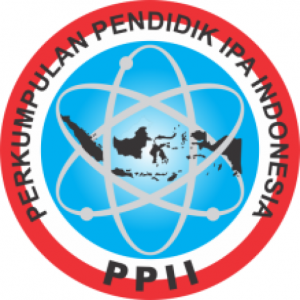Resveratrol: A Potential Active Compound for Inflammatory Bowel Disease
Authors
Ni Wayan Citra Ayu Saraswati , Gede Rama Hardy Nugraha , Ekawaty Retnaningsih , Fiza Afifah , Silmi Firdaus , Baiq Marceliya Anjani Mutia , Neneng Rachmalia Izzatul MukhlishahDOI:
10.29303/jbt.v24i3.7303Published:
2024-07-25Issue:
Vol. 24 No. 3 (2024): July - SeptemberKeywords:
Extraction, inflammation, inflammatory bowel disease, therapy, resveratrol.Articles
Downloads
How to Cite
Downloads
Metrics
Abstract
Inflammatory Bowel Disease (IBD) is a chronic intestinal disorder consisting of Crohn’s Disease (CD) and Ulcerative Colitis (UC). The highest prevalence of IBD is found in Asia and the cases often occur in the 15-35 group of age. Conventional therapy options that are commonly used have some side effects that impact IBD patients. Therefore, it is necessary to look for new strategies in order to treat IBD regarding their effectiveness, affordability and achieving minimum side effects. Resveratrol, a natural non-flavonoid polyphenolic compound, is commonly found in grapes and various types of berries. It is known to potentially overcome inflammation in IBD through various mechanisms including acting as anti-inflammatory, antioxidant, immunomodulatory effects, and its ability to influence the gut microbiota. This study is aiming for explaining and reviewing further mainly on resveratrol’s extraction method and its mechanism of actions to improve IBD. The resources for this study are done by searching through PubMed, ProQuest, ScienceDirect, MDPI, and Google Scholar with keywords (Inflammatory Bowel Disease) AND (Resveratrol), (Incidence and Prevalence) of Inflammatory Bowel Disease across Asia, (Threat) AND (Therapy) AND (Inflammatory Bowel Disease), (Bioactive) AND (Therapy) AND (Inflammatory Bowel Disease), (Extraction) AND (Method) AND (Resveratrol), and (Pathophysiology) AND (Inflammatory Bowel Disease). Based on evidence found on resveratrol’s benefits, this compound is apparently promising to alternatively treat IBD, but still needs more research to support its effectiveness.
References
Aliaño‐gonzález, M.J., Richard, T. and Cantos‐villar, E. (2020) ‘Grapevine cane extracts: Raw plant material, extraction methods, quantification, and applications’, Biomolecules, 10(8), pp. 1–33. Available at: https://doi.org/10.3390/biom10081195.
Baron, G., Ferrario, G., Marinello, C., Carini, M., Morazzoni, P., & Aldini, G. (2021). Effect of extraction solvent and temperature on polyphenol profiles, antioxidant and anti-inflammatory effects of red grape skin by-product. Molecules, 26(18), 5454. https://doi.org/10.3390/molecules26185454.
Beaugerie, L., Rahier, J.F. and Kirchgesner, J. (2020) ‘Predicting, Preventing, and Managing Treatment-Related Complications in Patients With Inflammatory Bowel Diseases’, Clinical Gastroenterology and Hepatology, 18(6), pp. 1324-1335.e2. Available at: https://doi.org/10.1016/j.cgh.2020.02.009.
Blagov, A. V., Orekhova, V. A., Sukhorukov, V. N., Melnichenko, A. A., & Orekhov, A. N. (2023). Potential Use of Antioxidant Compounds for the Treatment of Inflammatory Bowel Disease. Pharmaceuticals, 16(8), 1150. https://doi.org/10.3390/ph16081150.
Cai, Z., Wang, S. and Li, J. (2021) ‘Treatment of Inflammatory Bowel Disease: A Comprehensive Review’, Frontiers in Medicine, 8(December), pp. 1–24. Available at: https://doi.org/10.3389/fmed.2021.765474.
Chang, J.T. (2020) ‘Pathophysiology of inflammatory bowel diseases’, the New England Journal Medicine [Preprint]. Available at: https://doi.org/10.2310/gastro.5412.
Chang, Y., Zhai, L., Peng, J., Wu, H., Bian, Z., & Xiao, H. (2021). Phytochemicals as regulators of Th17/Treg balance in inflammatory bowel diseases. Biomedicine & Pharmacotherapy, 141, 111931. https://doi.org/10.1016/j.biopha.2021.111931.
Dvornikova, K.A., Platonova, O.N. and Bystrova, E.Y. (2023) ‘Inflammatory Bowel Disease: Crosstalk between Histamine, Immunity, and Disease’, International Journal of Molecular Sciences, 24(12). Available at: https://doi.org/10.3390/ijms24129937.
Ferreira, E., Soares, C., Delerue-Matos, C., & Moreira, M. M. (2023, October). A Comparison of Green Extraction Techniques for the Recovery of Bioactive Compounds from Grapevine By-Products. In Biology and Life Sciences Forum (Vol. 26, No. 1, p. 52). MDPI. https://doi.org/10.3390/foods2023-15050.
Flynn, S. and Eisenstein, S. (2019) ‘Inflammatory Bowel Disease Presentation and Diagnosis’, Surgical Clinics of North America, 99(6), pp. 1051–1062. Available at: https://doi.org/10.1016/j.suc.2019.08.001.
Friedrich, M., Pohin, M. and Powrie, F. (2019) ‘Cytokine Networks in the Pathophysiology of Inflammatory Bowel Disease’, Immunity, 50(4), pp. 992–1006. Available at: https://doi.org/10.1016/j.immuni.2019.03.017.
Gianchecchi, E. and Fierabracci, A. (2020) ‘Insights on the effects of resveratrol and some of its derivatives in cancer and autoimmunity: A molecule with a dual activity’, Antioxidants, 9(2), pp. 1–16. Available at: https://doi.org/10.3390/antiox9020091.
Gomez-Bris, R., Saez, A., Herrero-Fernandez, B., Rius, C., Sanchez-Martinez, H., & Gonzalez-Granado, J. M. (2023). CD4 T-cell subsets and the pathophysiology of inflammatory bowel disease. International journal of molecular sciences, 24(3), 2696. https://doi.org/10.3390/ijms24032696.
Gu, Y., Lou, Y., Zhou, Z., Zhao, X., Ye, X., Wu, S., ... & Ji, Y. (2024). Resveratrol for inflammatory bowel disease in preclinical studies: a systematic review and meta-analysis. Frontiers in Pharmacology, 15, 1411566. https://doi.org/10.3389/fphar.2024.1411566.
Guan, Q. (2019) ‘A Comprehensive Review and Update on the Pathogenesis of Inflammatory Bowel Disease’, Journal of Immunology Research, 2019. Available at: https://doi.org/10.1155/2019/7247238.
Hu, Y., Chen, D., Zheng, P., Yu, J., He, J., Mao, X., & Yu, B. (2019). The bidirectional interactions between resveratrol and gut microbiota: an insight into oxidative stress and inflammatory bowel disease therapy. BioMed Research International, 2019(1), 5403761. https://doi.org/10.1155/2019/5403761.
Iglesias, N., Galbis, E., Valencia, C., Díaz-Blanco, M. J., Lacroix, B., & de-Paz, M. V. (2020). Biodegradable double cross-linked chitosan hydrogels for drug delivery: Impact of chemistry on rheological and pharmacological performance. International Journal of Biological Macromolecules, 165, 2205-2218. https://doi.org/10.3390/ijms20020398.
Kelsen, J. R., Baldassano, R. N., Artis, D., & Sonnenberg, G. F. (2015). Maintaining intestinal health: the genetics and immunology of very early onset inflammatory bowel disease. Cellular and molecular gastroenterology and hepatology, 1(5), 462-476. https://doi.org/10.1016/j.jcmgh.2015.06.010.
Khare, T., Palakurthi, S. S., Shah, B. M., Palakurthi, S., & Khare, S. (2020). Natural product-based nanomedicine in treatment of inflammatory bowel disease. International journal of molecular sciences, 21(11), 3956. https://doi.org/10.3390/ijms21113956.
Kosović, E., Topiař, M., Cuřínová, P., & Sajfrtová, M. (2020). Stability testing of resveratrol and viniferin obtained from Vitis vinifera L. by various extraction methods considering the industrial viewpoint. Scientific Reports, 10(1), 5564. https://doi.org/10.1038/s41598-020-62603-w.
Li, Q. et al. (2024) ‘The progression of inorganic nanoparticles and natural products for inflammatory bowel disease’, Journal of Nanobiotechnology, 22(1), pp. 1–28. Available at: https://doi.org/10.1186/s12951-023-02246-x.
Loddo, I. and Romano, C. (2015) ‘Inflammatory bowel disease: Genetics, epigenetics, and pathogenesis’, Frontiers in Immunology, 6(NOV), pp. 6–11. Available at: https://doi.org/10.3389/fimmu.2015.00551.
Mishra, R., Dhawan, P., Srivastava, A. S., & Singh, A. B. (2020). Inflammatory bowel disease: therapeutic limitations and prospective of the stem cell therapy. World journal of stem cells, 12(10), 1050. https://doi.org/10.4252/wjsc.v12.i10.1050.
Moura, F. A., de Andrade, K. Q., Dos Santos, J. C. F., Araújo, O. R. P., & Goulart, M. O. F. (2015). Antioxidant therapy for treatment of inflammatory bowel disease: does it work?. Redox biology, 6, 617-639. https://doi.org/10.1016/j.redox.2015.10.006.
Noble, A. J., Nowak, J. K., Adams, A. T., Uhlig, H. H., & Satsangi, J. (2023). Defining interactions between the genome, epigenome, and the environment in inflammatory bowel disease: progress and prospects. Gastroenterology, 165(1), 44-60. https://doi.org/10.1053/j.gastro.2023.03.238.
Nunes, S., Danesi, F., Del Rio, D., & Silva, P. (2018). Resveratrol and inflammatory bowel disease: The evidence so far. Nutrition research reviews, 31(1), 85-97. https://doi.org/10.1017/S095442241700021X.
Park, J. and Cheon, J.H. (2021) ‘Incidence and prevalence of inflammatory bowel disease across Asia’, Yonsei Medical Journal, 62(2), pp. 99–108. Available at: https://doi.org/10.3349/ymj.2021.62.2.99.
Pelczyńska, M., Moszak, M., Wesołek, A., & Bogdański, P. (2023). The Preventive Mechanisms of Bioactive Food Compounds against Obesity-Induced Inflammation. Antioxidants, 12(6), 1232. https://doi.org/10.3390/antiox12061232.
Posadino, A. M., Cossu, A., Giordo, R., Zinellu, A., Sotgia, S., Vardeu, A., ... & Pintus, G. (2015). Resveratrol alters human endothelial cells redox state and causes mitochondrial-dependent cell death. Food and Chemical Toxicology, 78, 10-16. https://doi.org/10.1016/j.fct.2015.01.017.
Russo, E., Giudici, F., Fiorindi, C., Ficari, F., Scaringi, S., & Amedei, A. (2019). Immunomodulating activity and therapeutic effects of short chain fatty acids and tryptophan post-biotics in inflammatory bowel disease. Frontiers in immunology, 10, 2754. https://doi.org/10.3389/fimmu.2019.02754.
Salehi, B., Mishra, A. P., Nigam, M., Sener, B., Kilic, M., Sharifi-Rad, M., ... & Sharifi-Rad, J. (2018). Resveratrol: A double-edged sword in health benefits. Biomedicines, 6(3), 91. https://doi.org/10.3390/biomedicines6030091.
Samsami-Kor, M., Daryani, N. E., Asl, P. R., & Hekmatdoost, A. (2015). Anti-inflammatory effects of resveratrol in patients with ulcerative colitis: a randomized, double-blind, placebo-controlled pilot study. Archives of medical research, 46(4), 280-285. https://doi.org/10.1016/j.arcmed.2015.05.005.
Samsamikor, M., Daryani, N. E., Asl, P. R., & Hekmatdoost, A. (2016). Resveratrol supplementation and oxidative/anti-oxidative status in patients with ulcerative colitis: a randomized, double-blind, placebo-controlled pilot study. Archives of medical research, 47(4), 304-309. https://doi.org/10.1016/j.arcmed.2016.07.003.
Schirmer, M., Garner, A., Vlamakis, H., & Xavier, R. J. (2019). Microbial genes and pathways in inflammatory bowel disease. Nature Reviews Microbiology, 17(8), 497-511. https://doi.org/10.1038/s41579-019-0213-6.
Schoefs, E., Vermeire, S., Ferrante, M., Sabino, J., Lambrechts, T., Avedano, L., ... & Huys, I. (2023). What are the unmet needs and most relevant treatment outcomes according to patients with inflammatory bowel disease? A qualitative patient preference study. Journal of Crohn's and Colitis, 17(3), 379-388. https://doi.org/10.1093/ecco-jcc/jjac145.
Seyedian, S.S., Nokhostin, F. and Malamir, M.D. (2019) ‘A review of the diagnosis, prevention, and treatment methods of inflammatory bowel disease’, Journal of Medicine and Life, 12(2), pp. 113–122. Available at: https://doi.org/10.25122/jml-2018-0075.
Shi, Y., Zhou, J., Jiang, B., & Miao, M. (2017). Resveratrol and inflammatory bowel disease. Annals of the New York Academy of Sciences, 1403(1), 38-47. https://doi.org/10.1111/nyas.13426.
Tian, Y., Wang, Y., Ma, Y., Zhu, P., He, J., & Lei, J. (2017). Optimization of subcritical water extraction of resveratrol from grape seeds by response surface methodology. Applied Sciences, 7(4), 321. https://doi.org/10.3390/app7040321.
Vrdoljak, J., Kumric, M., Ticinovic Kurir, T., Males, I., Martinovic, D., Vilovic, M., & Bozic, J. (2021). Effects of wine components in inflammatory bowel diseases. Molecules, 26(19), 5891. https://doi.org/10.3390/molecules26195891.
Wang, Y., Hong, C., Wu, Z., Li, S., Xia, Y., Liang, Y., ... & Tang, W. (2022). Resveratrol in intestinal health and disease: focusing on intestinal barrier. Frontiers in Nutrition, 9, 848400. https://doi.org/10.3389/fnut.2022.848400.
Wark, G., Samocha-Bonet, D., Ghaly, S., & Danta, M. (2020). The role of diet in the pathogenesis and management of inflammatory bowel disease: a review. Nutrients, 13(1), 135. https://doi.org/https://doi.org/10.3390/ nu13010135.
Wellington, V. N. A., Sundaram, V. L., Singh, S., & Sundaram, U. (2021). Dietary supplementation with vitamin d, fish oil or resveratrol modulates the gut microbiome in inflammatory bowel disease. International Journal of Molecular Sciences, 23(1), 206. https://doi.org/10.3390/ijms23010206.
Xu, Y., Fang, M., Li, X., Wang, D., Yu, L., Ma, F., ... & Li, P. (2024). Contributions of Common Foods to Resveratrol Intake in the Chinese Diet. Foods, 13(8), 1267. https://doi.org/10.3390/foods13081267.
Yao, Y., Yuan, H., Chen, C., Liang, J., & Li, C. (2023). Study of the antioxidant capacity and oxidation products of resveratrol in soybean oil. Foods, 13(1), 29. https://doi.org/10.3390/foods13010029.
Zhang, L. X., Li, C. X., Kakar, M. U., Khan, M. S., Wu, P. F., Amir, R. M., ... & Li, J. H. (2021). Resveratrol (RV): A pharmacological review and call for further research. Biomedicine & pharmacotherapy, 143, 112164. https://doi.org/10.1016/j.biopha.2021.112164
License
Copyright (c) 2024 Ni Wayan Citra Ayu Saraswati, Gede Rama Hardy Nugraha, Ekawaty Retnaningsih, Fiza Afifah, Silmi Firdaus, Baiq Marceliya Anjani Mutia, Neneng Rachmalia Izzatul Mukhlishah

This work is licensed under a Creative Commons Attribution 4.0 International License.

Jurnal Biologi Tropis is licensed under a Creative Commons Attribution 4.0 International License.
The copyright of the received article shall be assigned to the author as the owner of the paper. The intended copyright includes the right to publish the article in various forms (including reprints). The journal maintains the publishing rights to the published articles.
Authors are permitted to disseminate published articles by sharing the link/DOI of the article at the journal. Authors are allowed to use their articles for any legal purposes deemed necessary without written permission from the journal with an acknowledgment of initial publication to this journal.


























